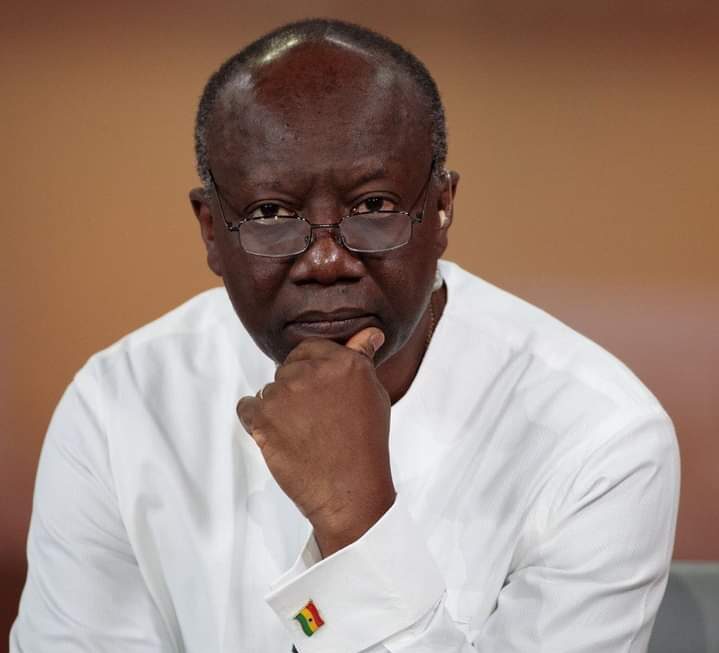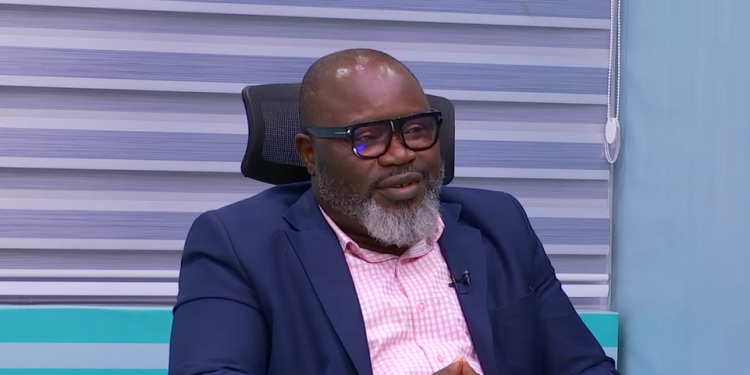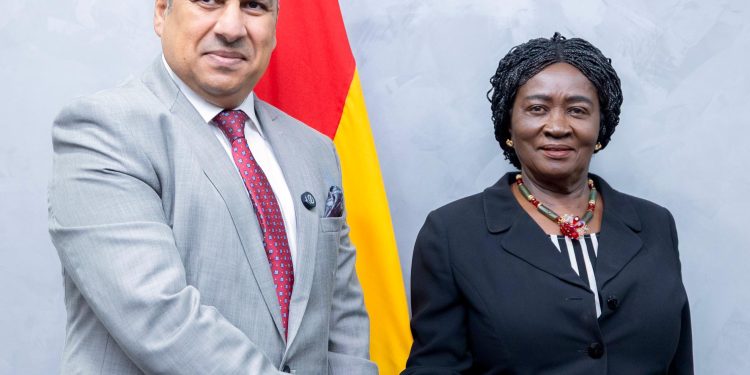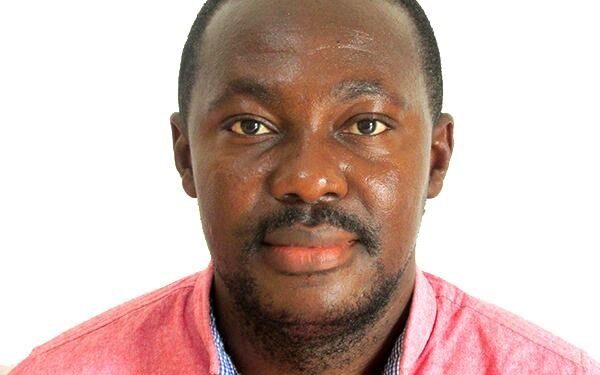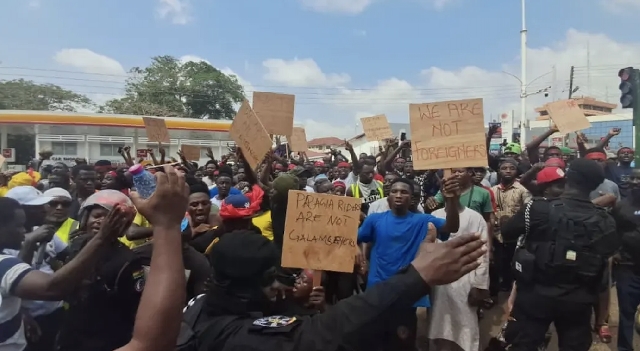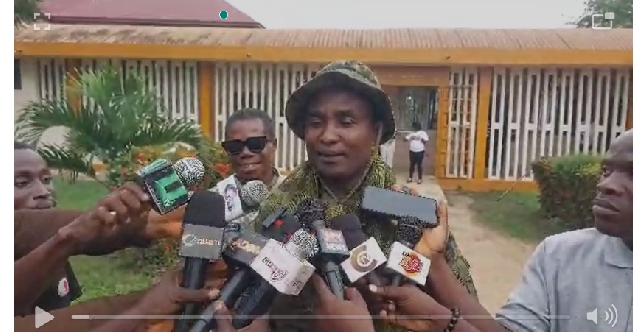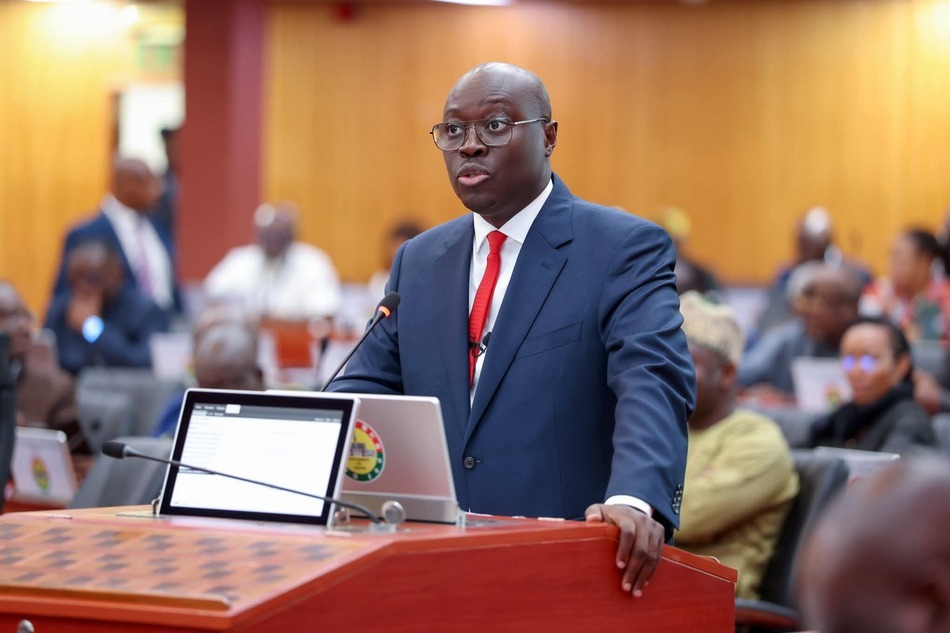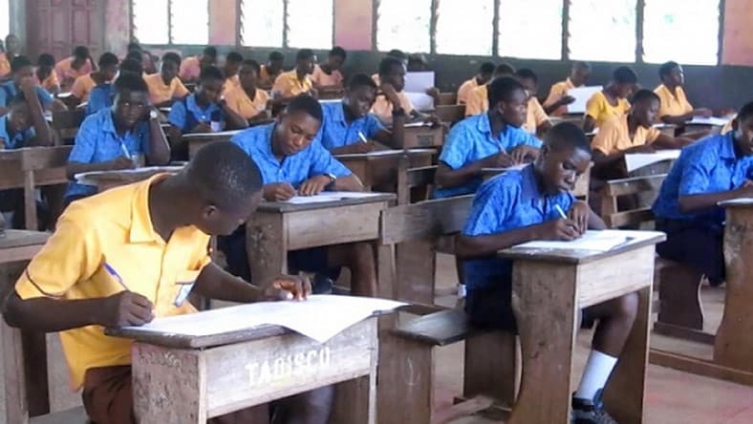The Ministry of Education has officially opened the Computerised School Selection and Placement System (CSSPS) portal for students who wrote the 2025 Basic Education Certificate Examination (BECE) The Ministry of Education has announced the official opening of the Computerised School Selection and Placement System (CSSPS) portal, marking a pivotal step for students who sat for the 2025 Basic Education Certificate Examination (BECE). This year, out of 590,000 candidates, a total of 483,800 students have been successfully placed into various Senior High Schools (SHS), Senior High Technical Schools (SHTS), and Technical and Vocational Institutions (TVIs) across Ghana. Deputy Education Minister, Clement Apaak, shared the news, highlighting the progress made in expanding access to secondary education. “I am happy to announce that the placements were released on September 17, 2025, at 8 pm, and subsequently, we informed all District and Regional directors. This is a remarkable milestone that reflects our collective progress,” he stated. He further broke down the figures, revealing that 248,038 of those placed are females (51.4%), while 234,783 are males (48.6%). However, 107,509 candidates (18.2%) could not be matched with their initial school choices, largely due to high demand for certain Category A schools. For these students, the Ministry has activated the self-placement portal, allowing them to select from available schools. Solution centres have also been set up nationwide to assist students facing challenges with the placement process. Deputy Minister Apaak urged parents and guardians to be vigilant, cautioning them against paying money to secure school placements. “Let me reiterate that placement is free. The Ministry of Education and the Minister [Haruna Iddrisu] caution all parents and guardians against paying money to any individual, be it a ministry official or a third party, for placement,” he warned. He encouraged anyone approached for such payments to report the incident immediately to the nearest police station or the Office of the Special Prosecutor. The opening of the CSSPS portal marks another milestone in Ghana’s commitment to providing equitable and transparent access to secondary education for all qualified students. Source: Apexnewsgh.com
Royal Nursing College Shut Down by GTEC Over Accreditation Issues
The Ghana Tertiary Education Commission (GTEC) has directed the Royal Nursing College in Kumasi to cease operations immediately after the institution’s accreditation was found to have expired nearly four years ago The Royal Nursing College in Kumasi faces an abrupt shutdown following a directive from the Ghana Tertiary Education Commission (GTEC), which discovered that the college’s accreditation expired as far back as December 16, 2021. The order, outlined in a letter dated September 12, 2025 and signed by GTEC Director-General Prof. Ahmed Jinapor Abdulai, mandates the college to halt all operations until it secures renewed accreditation from both GTEC and the Nursing and Midwifery Council (NMC). This decisive action comes after a meeting held on August 28, 2025, involving college officials, GTEC, the NMC, and the Ministry of Health’s Health Training Institutions Unit. The Commission’s letter made it clear that Royal Nursing College cannot continue functioning as a tertiary institution until full compliance with regulatory standards is achieved. According to the directive, the college must immediately cease operations and collaborate with its mentor institution, the University of Cape Coast (UCC), to craft a teach-out plan for students admitted between 2021 and 2024. Admissions are to be suspended, and no new students may be enrolled until the institution’s accreditation is fully restored. Additionally, the college is required to submit comprehensive documentation for its staff — including appointment letters, CVs, and evidence of regular remuneration, to verify employment status. The Commission also instructed Royal Nursing College to address all identified deficiencies and provide verifiable proof of corrective actions taken. Only after a joint verification visit by GTEC and the NMC will the prospect of accreditation renewal be considered. GTEC underscored the gravity of the situation, urging that the matter be handled with “the utmost urgency and seriousness it deserves.” Source: Apexnewsgh.com
GES Set to Release SHS Placements Today
The excitement was palpable across Ghana as the Ghana Education Service (GES) prepared to release the Senior High School (SHS) placements for candidates who sat for this year’s Basic Education Certificate Examination (BECE). Today, September 17, 2025, marked a significant day for thousands of students and families. For the past week, candidates had anxiously verified their details on the Computerized School Selection and Placement System (CSSPS) portal, ensuring everything was in order before the big announcement. As the sun rose, parents and guardians logged onto cssps.gov.gh, eager to check their wards’ placements. The GES had reassured everyone that any issues could be resolved right on the portal, ensuring a smoother process for all. Last month, Professor Ernest Davis, the Director-General of GES, spoke about the importance of the verification process. “In order to reduce errors associated with school placement, candidates had the opportunity to review the entries they made online,” he explained, adding that this step would help minimize mistakes and disappointments. To make things even easier, the Ministry of Education had released a helpful two-minute instructional video just a week before. Parents and candidates can now follow simple steps to confirm their choices, Check Placement, or Self-Place, using their BECE index numbers and dates of birth to log in. But as anticipation grew, so did warnings. Dr. Clement Apaak, the Deputy Minister of Education, reminded everyone to beware of fraudsters. “Placement is free. Do not pay money to anyone who claims he or she can help you with placement. Anyone demanding money in exchange for placement is a fraudster and should be reported to the police immediately,” Dr. Apaak cautioned. With these safeguards and guidance in place, candidates and their families waited, hopeful and prepared, for the next chapter of their educational journey. Source: Apexnewsgh.com
Education Minister Haruna Iddrisu Calls for Discipline and Peace in Schools During Upper East Visit
The Minister of Education, Mr. Haruna Iddrisu, has paid a working visit to schools in the Upper East Region to assess first-hand the challenges faced by teachers and the impact of the Bawku conflict on teaching and learning. Apexnewsgh reports His tour also took him to the Bolgatanga Technical Institute (Bolga Tech) where he inspected damages caused by recent student riots. Addressing stakeholders, Mr. Iddrisu expressed deep concern over the presence of security officers in educational institutions. “In the education space and in the learning environment, it is wrong, wrong, wrong to see men in uniform—whether military or police—on any campus. Education today is not just about literacy and numeracy, it’s about character molding and character building.” He warned that any compromise in shaping the values of tolerance, honesty, and integrity in young people would have far-reaching consequences for the nation’s future. “If polarization takes root in educational institutions, classrooms will remain silent and learning will be practically impossible. We will be denying these youngsters a secure, better future.” At Zamse Senior High/Technical School (ZAMSTEC), the Minister inspected uncompleted structures, including a teacher’s hostel, which he suggested could be converted into a girls’ dormitory once its structural integrity is confirmed. He emphasized the need for secured land and a protective wall for the school, assuring that such projects would receive priority attention. However, at Bolga Tech, Mr. Iddrisu was stern about the consequences of student indiscipline. “You go and fight and burn a library, then you turn around and say government should come and help you? I have asked that disciplinary actions be strictly enforced. Those culpable must be punished in accordance with the GES code of conduct.” He directed the school’s authorities to submit their final investigation report within seven days, stressing that justice must be swift and fair. “If children get it right at this age, they will get it right at age 60 or 80. If they miss the opportunity, the country misses the opportunity.” Looking ahead, the Minister reaffirmed government’s commitment under President Mahama’s agenda to inject massive investment into education in 2026. He announced a planned one billion cedi investment aimed at ending the double-track system, expanding infrastructure, rolling out a school connectivity program, and revolutionizing STEM education. Mr. Iddrisu also underscored the need to rebrand technical and vocational training in Ghana, not as an option for the less academically inclined, but as a strong pathway to skills and employment. On the issue of deploying armed security in schools, he was categorical: “No, I don’t support uniforms and glasses in schools. Why should you take a uniform? What do you want in this country, raising students to arms and uniforms? I’m sorry, that’s not acceptable. We’ll never allow that practice.” The Minister concluded by assuring that issues such as inadequate furniture would also be addressed, but insisted that discipline, peace, and values must remain at the heart of Ghana’s education system. Source: Apexnewsgh.com
Over 170,000 Students Benefit from No Fee Stress Policy, Says NUGS President
The President of the National Union of Ghana Students (NUGS), Daniel Korley Botchway, has announced that more than 170,000 students have so far benefited from the No Fee Stress Policy, a flagship initiative introduced by the Mahama-led administration. Mr. Botchway revealed that the policy has significantly eased the financial burden on parents and students, leading to improved access to education and fostering academic excellence across the country. He explained that the policy provides support for students in public tertiary institutions, including universities, colleges of education, and nursing training institutions. Despite the program’s success, Mr. Botchway acknowledged that some students are still awaiting their disbursements due to delays in the validation process. Highlighting the policy’s broader impact, Mr. Botchway noted that its second phase allows students to access loans, which are repayable two years after graduation. He praised the Ministry of Education and the sector minister, Haruna Iddrisu, for their dedication and support in implementing the policy. In related developments, Angel Carbonu, President of the National Association of Graduate Teachers (NAGRAT), commended Minister Haruna Iddrisu for his collaborative approach to educational reforms. Carbonu also disclosed that ongoing engagements with stakeholders are expected to see around 99 Senior High Schools removed from the double-track system soon. Furthermore, Irene Sam, Public Relations Officer of the National Council of Parent-Teacher Associations (PTA), applauded the minister for reintegrating PTAs into the school system. She emphasized that this move has strengthened school-community relations and reinforced the policy direction within the education sector. Source: Apexnewsgh.com
The Aggrieved Newly Posted Teachers Announce Demonstration Over Salary Delays
The Newly Posted Teachers. Comprising graduates from Colleges of Education and universities, these teachers had devoted themselves to shaping the future of Ghana, only to find themselves trapped in a web of financial uncertainty. For twelve long months, the college-trained teachers had waited for their first salaries. Their colleagues from the universities had endured eight months of the same ordeal. The unpaid months had taken their toll, leaving the teachers struggling to pay rent, buy food, settle medical bills, and keep up with utility payments. The situation, described by many as “devastating,” had even claimed lives among their ranks. “Many of us can no longer pay our rent, which is overdue. We are unable to settle our utility bills, and even basic needs such as food and medical bills remain unmet,” lamented a member of the group. The pain in their voices underscored the gravity of their plight. At a press briefing held in Accra, the Lead Convener, Simon Kofi Nartey, made a heartfelt appeal to President Mahama. He urged the President to intervene and prompt the Ministry of Finance to release the long-awaited funds. “We know that His Excellency, John Dramani Mahama, is a listening president. We humbly call for his urgent intervention to ensure that the Ministry of Finance releases the necessary funds to pay our arrears and salaries without further delay,” Nartey stated. The teachers, united in their cause, have issued a stern warning: if their staff ID numbers are not issued, their salaries are not validated, and arrears are not paid by the end of September 2025, they will take to the principal streets of Accra in a massive demonstration. This protest, they say, will be their way of registering both their displeasure and the hardship they have endured for far too long. The fate of these teachers, and the future of those they teach, now hangs in the balance, awaiting a response from the nation’s leaders. Source: Apexnewsgh.com
The Institute for Liberty and Policy Innovation Welcomes Desmond Israel Esq. as Senior Policy Research Fellow
The Institute for Liberty and Policy Innovation (ILAPI) has ushered in a new era of thought leadership with the appointment of Desmond Israel Esq. as its Senior Policy Research Fellow. This strategic move underscores ILAPI’s growing influence in the fields of business regulation, cyberlaw, and digital governance, all in pursuit of a freer and more innovative society. Desmond Israel is no stranger to the intersection of law and technology. With over 20 years of experience as a legal tech strategist and cybersecurity expert, Israel brings a wealth of interdisciplinary expertise to ILAPI’s mission of fostering a prosperous and innovation-driven Africa. At ILAPI, he will spearhead the institute’s Business Regulatory and Cyberlaw Initiatives, setting the stage for transformative policy work. In his new role, Israel will: Lead policy research and analysis, offering critical insights on governance and institutional reform. Provide strategic advisory on AI governance, digital risk management, and frameworks that advance liberty. Oversee the implementation of ILAPI’s flagship projects, ensuring their impact across Africa. Mentor junior fellows and interns, nurturing the next generation of research and policy leaders. Israel’s appointment reflects ILAPI’s deep commitment to ethical innovation and digital sovereignty. Beyond his new role, Israel serves as Partner in the Cyberlaw & Technology Practice at AGNOS Legal Company, Founder & Lead Consultant at Information Security Architects Ltd (a Rapid7 Gold Partner), and Non-Executive Director (Cyber & Privacy Advisory) at Zerone AnalytiQs in British Columbia, Canada. His expertise covers data protection compliance, AI regulatory alignment, and enterprise IT governance. A recipient of the GW Law Merit Scholarship, Israel holds an LL.M. in National Security and Cybersecurity from The George Washington University Law School and is certified in CISSP, CIPM, CCT, and CC. Israel is a renowned keynote speaker at global conferences, known for bridging legal, technological, and human rights perspectives. He teaches Technology Law at GIMPA Law School and consults with the National Banking College to design board-level programs on cyber risk and AI strategy for financial institutions throughout Africa. His policy collaborations span notable organizations such as the Center for AI and Digital Policy in Washington, D.C., and the Internet Security Alliance in Virginia. ILAPI hails Israel’s appointment as a “significant step toward advancing freedom, ethical innovation, robust governance, and digital sovereignty in Africa and beyond.” Source: Apexnewsgh.com
Double-Track Debate: Dr. Yaw Osei Adutwum’s Office Rebuts Claims of Lowered Education Quality
The office of Dr. Yaw Osei Adutwum, former Minister of Education, has strongly refuted assertions by current Education Minister Haruna Iddrisu that the double-track system negatively impacted education quality in Ghana. Responding to the remarks made by Mr. Iddrisu at a media briefing in Accra on August 21, 2025, Dr. Adutwum’s spokesperson, Yaw Opoku Mensah, described the Minister’s claims as misleading and contradicted by data. During the briefing, Mr. Iddrisu had argued that the double-track policy reduced contact hours and compromised academic standards, announcing the formation of an 11-member committee to oversee its phase-out. Opoku Mensah, however, offered a different perspective. He explained that the double-track system, introduced in 2018 alongside the Free SHS policy, was a necessary emergency intervention to accommodate an unprecedented surge in student enrollment. Prior to its introduction, senior high schools had capacity for only 277,537 students—falling short by nearly 182,000 students against the expected 472,730. “The system prevented widespread exclusion, averting about 11.5 percent of students in the Northern sector and 35 percent in the Southern sector who would otherwise have missed out due to lack of space,” he said. Contrary to claims of compromised quality, Opoku Mensah stressed that the double-track system actually expanded access to top Category A schools for students from underprivileged backgrounds and increased annual contact hours from 1,080 to 1,134, while maintaining a 180-day instructional calendar. He highlighted that academic performance improved under the policy: WAEC records show over 60 percent of graduates gained admission to tertiary institutions during the double-track period. Additionally, Ghana produced the best WAEC candidates in West Africa for four consecutive years. He further noted that the double-track system was phased out in 2021, making way for the current transitional calendar. Opoku Mensah urged government officials to ground public discourse in facts rather than politicizing education policy interventions that expanded access and improved outcomes. Background The double-track and Free SHS policies were introduced in 2018 under President Nana Addo Dankwa Akufo-Addo, with Dr. Matthew Opoku Prempeh as Education Minister. Dr. Adutwum later managed the policy until its phase-out. The initiative aimed to expand access to senior high school education while addressing critical infrastructure deficits. Source: Apexnewsgh.com
WAEC Calls for Surveillance Cameras in Exam Halls to Curb Malpractice
The West African Examinations Council (WAEC) is calling for bold new measures to protect the integrity of Ghana’s education system. Mr. John Kapi, Head of Public Affairs at WAEC, has appealed to the government to consider installing surveillance cameras in examination centres across the country, a move he believes is crucial in the ongoing fight against exam malpractice. In a recent media interview, Mr. Kapi acknowledged that WAEC has been working tirelessly to educate students and stakeholders about the dangers and consequences of cheating during exams. However, he noted that awareness campaigns alone are not enough. “Sensitisation alone is not enough. The installation of cameras in exam halls will serve as both a deterrent and a monitoring tool to curb malpractice,” he explained. Mr. Kapi warned that examination malpractice not only threatens the credibility of Ghana’s education system but also undermines the value of certificates issued by WAEC. He cautioned that failure to act decisively could have long-lasting consequences for the nation’s human resource development. He concluded by urging the government and all education stakeholders to provide WAEC with the necessary logistics and resources to enhance examination monitoring nationwide, ensuring that Ghana’s academic credentials remain respected and trusted both locally and internationally. Source: Apexnewsgh.com
No Fees Stress Programme Delivers Major Relief to Tertiary Students-Over 120,000 Reimbursed So Far
The government’s flagship ‘No Fees Stress’ programme is making waves across the nation’s tertiary institutions, bringing tangible relief to thousands of students burdened by the cost of higher education. In a recent update, the Minister in charge of Government Communications, Mr. Felix Ofosu Kwakye, shared the latest milestones of the initiative, painting a picture of significant progress and hope. As of the 7th August 2025 application deadline, the numbers tell a compelling story: a remarkable 207,087 applications poured in from students eager to benefit from the financial support. Of these, public tertiary institutions officially enrolled 178,745 students, forwarding their details for further processing. The next hurdle, validation, was met with determination. So far, 142,089 applicants have been successfully validated, clearing the way for reimbursement. Most notably, Mr. Ofosu Kwakye revealed that 120,222 students have already received reimbursement under the scheme, directly easing the financial pressures on their academic journeys. Source: Apexnewsgh.com

